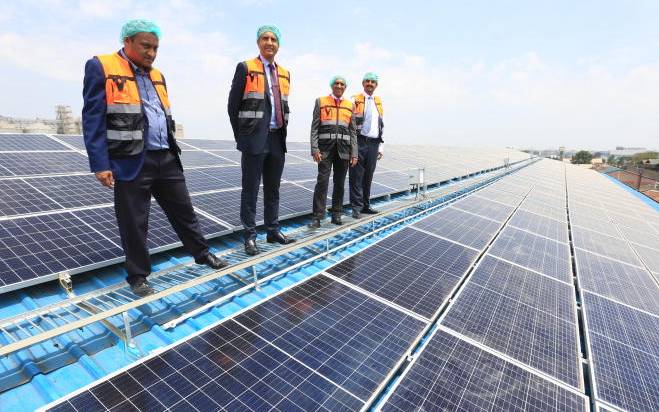×
The Standard e-Paper
Kenya’s Boldest Voice

Some of the directors view the solar panels on the roof of Ashut company in industrial area. The panels have reduced power consumption by 15-20 per cent.. [George Njunge, Standard]
Kenya Power’s concern over consumers defecting to cheaper solar power away from the national grid is expected.